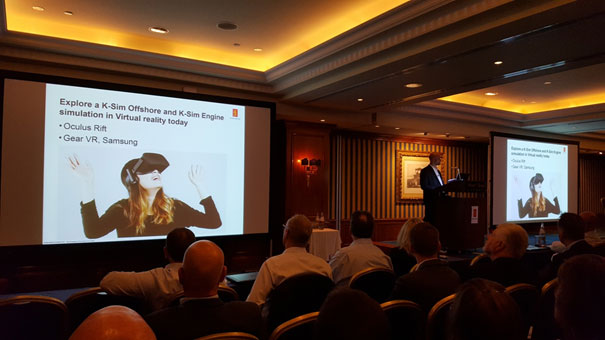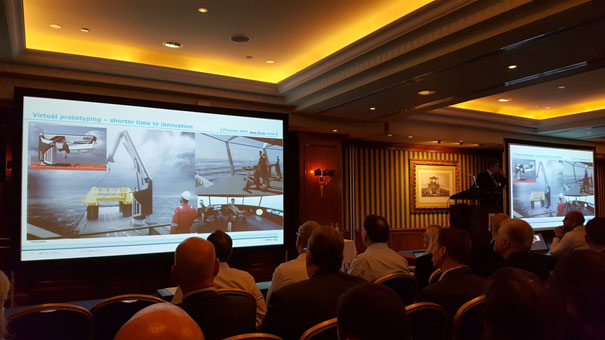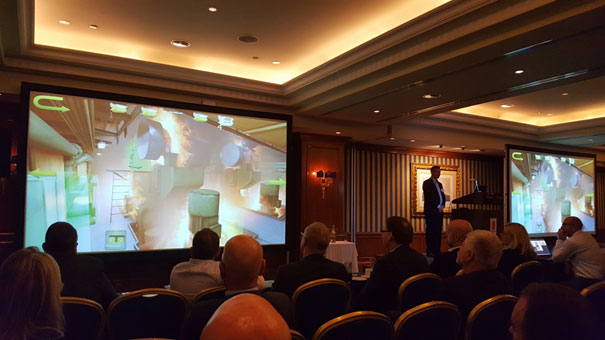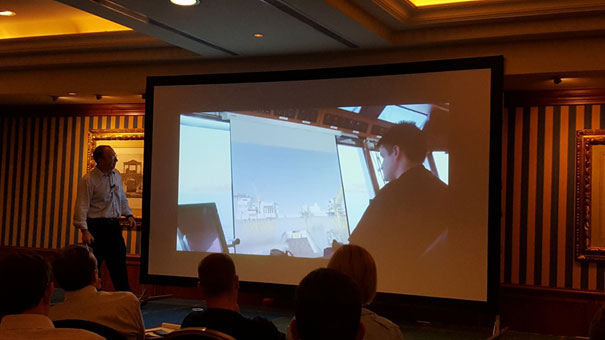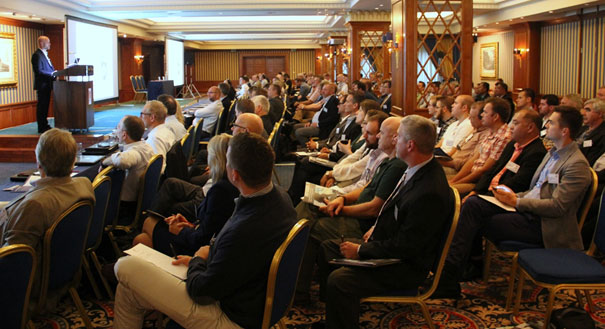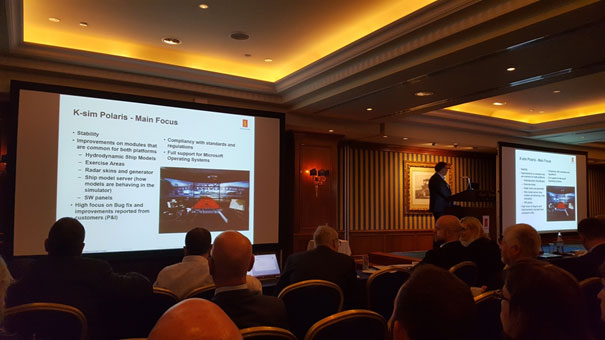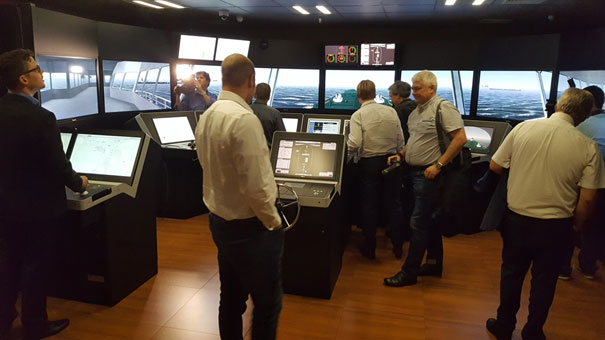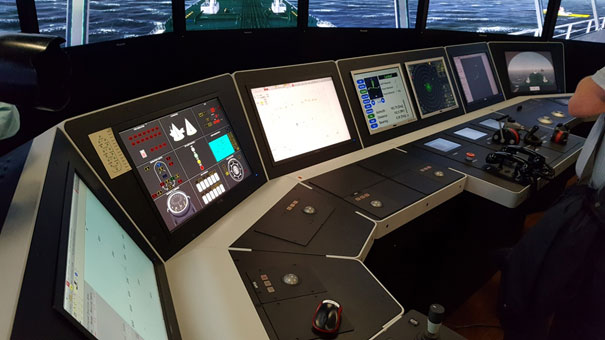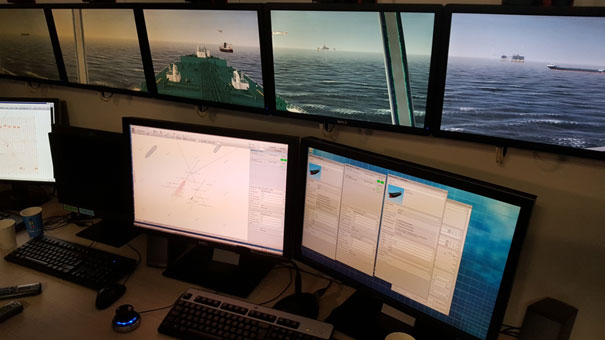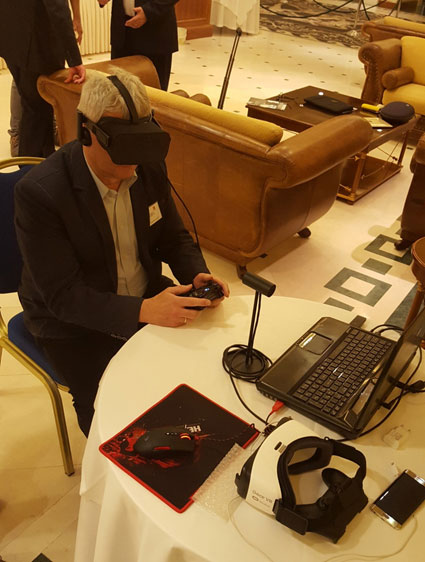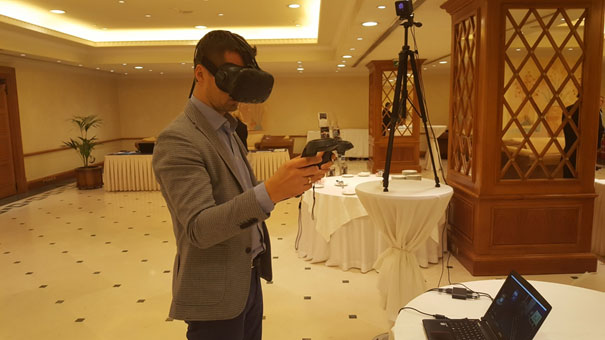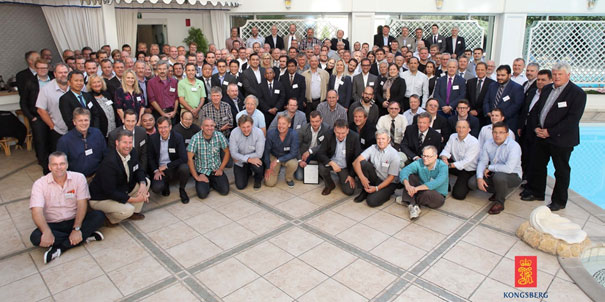In the period 25-27 October, an international conference of Konsberg Maritime A.S. simulator users was held in Athens. The main theme of the meeting was “The Role of Human Factors in Simulation and Training”.
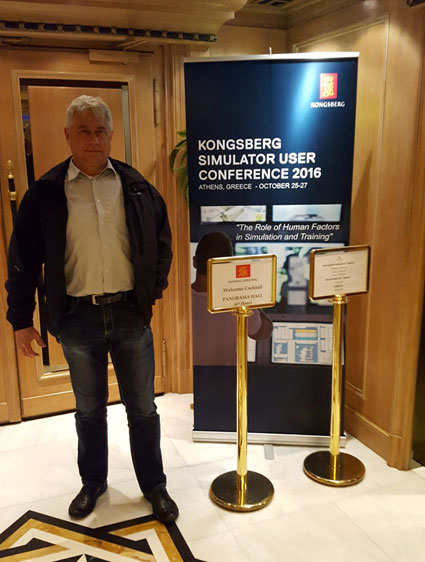
The idea of the annual conference is to enable the participants to exchange knowledge and experience in working with simulators as well as identify the common objectives and solutions in improvement of the products intended to be used in the educational process, in trainings as well as research and development work.
At the invitation of Konsberg Digital, one of the leaders in the area of simulation systems for the maritime sector, the following representatives of the Maritime University of Szczecin took part in the conference: Deputy Director of the Institute of Marine Traffic, Wiesław Juszkiewicz, PhD, Eng., and the Director of the Marine Traffic Engineering Centre Rafał Gralak, PhD, Eng.
During 3-day sessions, the management staff of the producer presented e.g. the main assumptions and trends constituting the milestones in future development of the company. Except for improvement of the systems in their present form known to the users, a common feature of future navigation, offshore and mechanical simulators will be the use of Mixed Reality, including e.g. Augmented Reality.
During theme sessions organised in the form of discussions, users of simulation systems had an opportunity to report to the producer the proposals of their own solutions, which aimed at increasing the functionality and the degree of representing the reality of these systems. Based on long-term experience in working with simulators of this producer, representatives of MUS proposed their suggestions as regards provision of towing assistance by an instructor.
The MUS representatives were especially interested in the presentation of the latest system implemented in navigation and manoeuvre simulators - K-Sim Navigation® – being the successor of Polaris® system, which is installed e.g. in the Marine Traffic Engineering Centre as well as in the new ARPA simulator. The possibility of testing the latest available solutions was provided by the producer during a visit to the MARIA TSAKOS TCM Training Centre located in Athens.
In the interval between the sessions, the conference participants had an opportunity to get acquainted with prototypes of applications using MR technology solutions. Using Oculus Rift® and HTC Vive® headsets, the producer presented a demo of the software for training within the scope of SAR actions and engine room operation.
Participation of MUS representatives in the conference enabled them to get acquainted with the possibilities offered on the market for development and modernisation of scientific and educational simulators at our university. This will be reflected in development of the most beneficial ways of acting aiming at increasing the attractiveness of trainings conducted both for students and as a part of specialist courses as well as scientific research done at university.
The subject matter and the content of the conference fitted in the international development trends of simulation systems. It seems that the future of maritime simulators is connected with the use of MR technology, which confirms the assumptions and the direction of research within this scope adopted by the employees of both MUS institutes.

